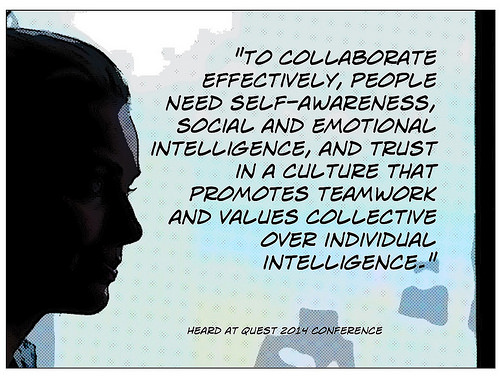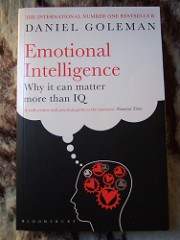
The human being is the species on Earth with the biggest brain development along evolution. Our cognitive development has allowed us to build a highly changing and complex environment of human relationships but, paradoxically, humans find it hard to adapt to it because every human action is affected by an emotional system which we have inherited from our distant ancestors. Historically, emotion has been neglected in favour of reason, because it was thought that emotions and passions belonged to the animal side of the human being.
Our cognitive development has allowed us to build a highly changing and complex environment of human relationships but, paradoxically, humans find it hard to adapt to it because every human action is affected by an emotional system which we have inherited from our distant ancestors. Historically, emotion has been neglected in favour of reason, because it was thought that emotions and passions belonged to the animal side of the human being.
Therefore, traditional school education focuses on building knowledge, forgetting about emotions and hoping that emotions don’t get in the way of learning.
Many experts have expressed their concern about the problems of the emotional dimension of human beings and claim that we should help our youngsters develop emotional intelligence. Emotional intelligence can be defined as
the ability to identify and manage your own emotions and the emotions of others. It is generally said to include three skills: emotional awareness; the ability to harness emotions and apply them to tasks like thinking and problem solving; and the ability to manage emotions, which includes regulating your own emotions and cheering up or calming down other people.
(https://www.psychologytoday.com/basics/emotional-intelligence)
 But why is it important to develop emotional intelligence?
But why is it important to develop emotional intelligence?
Emotions arise everywhere -in the school as well as in any other contexts of social interaction- and the latest research is showing that emotional intelligence plays an important role in learning processes and the student’s wellbeing. And yet, while teachers are engaged in improving our students’ competences in maths, science and language, teenagers have extremely low emotional competence, as Daniel Goleman points out in his 1996 book, Emotional Intelligence. Why It Can Matter More Than IQ. This leads to several unadaptive behaviours such as drugs abuse, (cyber-)bullying and gender violence, suicidal attempts and eating disorders (anorexia and bulimia) -to name just a few.
From the psychopedagogical point of view, lacking emotional intelligence influences motivation, classroom behaviour and social interaction with peers in a negative way, in turn leading to learning difficulties, absenteeism and early school leaving. In the UNESCO report Learning: The Treasure Within, by Jacques Delors (1996), four basic pillars are established for 21st century education -learning to know, learning to do, learning to live together and learning to be- and these last two pillars are what emotional education is about.
(Source: http://www.eskolabakegune.euskadi.eus/c/document_library/get_file?uuid=bab135eb-9cb7-4f32-aa8d-290d7ed8f5f7&groupId=2211625)
Do you want to go deeper inside emotional intelligence theory? Then watch Daniel Goleman himself explaining it:
(Image 1 attribution: Educational Postcard by Ken Whytock. License CC BY-NC 2.0 )
(Image 2 attribution: Emotional intelligence by raulbarraltamayo. License CC BY-SA 2.0 )